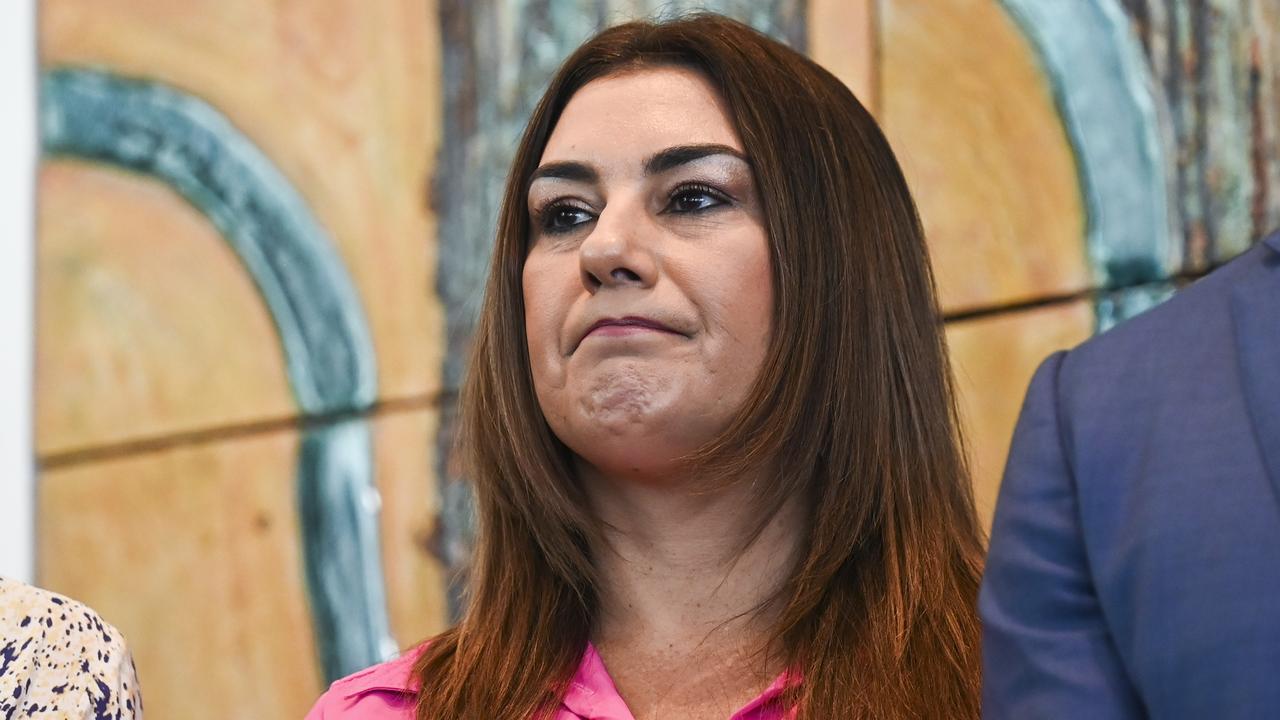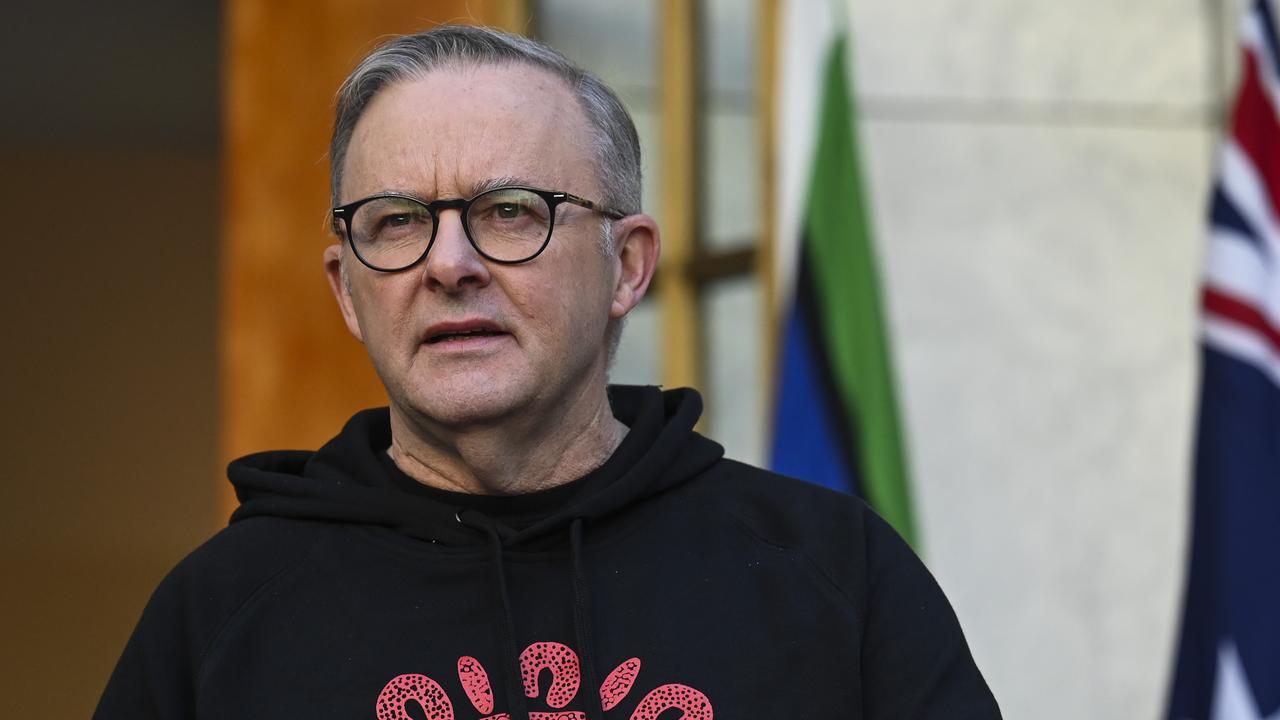Lidia Thorpe says nothing will change despite outcome of Voice referendum as fresh poll cements No vote
The outspoken senator has made a big claim about the outcome of the upcoming referendum as a fresh poll spells danger for the Yes camp.
The Voice won't change the lives of First Nations people and the referendum is actually doing them more harm than good, senator Lidia Thorpe has claimed.
Australians will head to the polls in just three weeks to vote whether to recognise Indigenous Australians in the constitution through an enshrined advisory body.
But the Gunnai, Gunditjmara and Djab Warrung senator has claimed either way Australia votes, nothing will change.
“Nothing changes if it’s a yes or no vote,” she told ABC’s Radio National on Monday.
“Our people are still dying at the hands of the system, the system is still racist.”
Senator Thorpe has become the face of the “progressive no” camp since her defection from the Greens in order to campaign against the Voice as a leader of the blak sovereign movement.
The senator has flagged she’d be willing to pull back her opposition if the government acts to implement recommendations from the 1991 Royal Commission into Aboriginal Deaths in Custody and the Bringing Them Home report.

She said the Voice debate was hurting Indigenous Australians more than the “George Floyd moment” of the Black Lives Matter movement in 2020.
“There are communities being torn apart, families are fighting one another, either yes or no,” she said.
“And what do we get at the end of the day? We get crumbs on the table and that is not good enough.”
It comes as a fresh Newspoll delivered another blow to the Yes campaign, with support for the referendum slumping to its lowest level yet.
Support for the Voice plummeted another two points to 36 per cent, suggesting the Yes campaign failed to generate the momentum they expected ahead of October 14.
Meanwhile, the No vote nationally rose another three points to 56 per cent.
The swing to the No vote has occurred across all demographic indicators – but most concerningly for the Yes campaign is the fall among younger voters who have been the strongest supporters to date.
Support among Labor voters has also declined – falling from 61 per cent in the last poll three weeks ago – to 56 per cent.
Opposition Leader Peter Dutton said much of the blame for the drop in support rested on Anthony Albanese’s shoulders.
He dismissed the Prime Minister’s promise for the Voice, should it be successful, to be designed by a bipartisan committee as “political games”.
“It’s obvious that he’s now trying to desperately find ways to suggest to people that there could be a bipartisan position when all he’s done right from day one is divide Australia,” Mr Dutton told reporters in Moree.
Nationals leader David Littleproud, however, said he wouldn’t rebuff the offer to join the committee in the event of a surprise Yes victory.
“We intend to be constructive as we always have,” he said.
On Monday, more than 125 health organisations, including the Australian Medical Association, CareFlight and Suicide Prevention Australia, signed an open letter in support of the Voice.

“As health professionals, we witness first hand the disparity in health outcomes between non-Indigenous Australians and Aboriginal and Torres Strait Islander peoples,” the letter stated.
“The Voice is an opportunity for us to make a practical difference, to ensure the gap between Aboriginal and Torres Strait Islander peoples and non-Indigenous Australians does not continue to widen.”
Mr Albanese said he was hopeful that people would “have a look at what the actual question is” before they voted and recognise “the opportunity to advance reconciliation”.
“We need to do better than just having more of the same, and the No vote closes the gate on doing things differently and getting better outcomes through that listening process,” he told ABC Radio.



